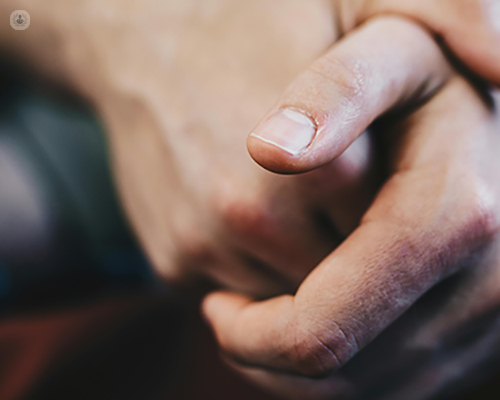Parkinson's disease: Symptoms, causes, and treatment insights
Autore:Parkinson's disease is an intricate neurological disorder that impacts millions of individuals globally. It is important to provide clear and accessible information to patients who may be grappling with this diagnosis. In his latest online article, Dr Nikolay Dimitrov explores what Parkinson's disease entails, its symptoms, potential causes, and how it can be managed.

What is Parkinson's disease?
Parkinson's disease is a progressive neurological disorder that predominantly influences movement. It occurs when there is a decrease in dopamine production in the brain. Dopamine is a chemical messenger that helps to transmit signals between nerve cells and is crucial for coordinating smooth and balanced muscle movement.
Symptoms of Parkinson's disease
The symptoms of Parkinson's disease can vary from person to person, but commonly include:
- Tremors: Uncontrollable shaking, typically beginning in the hands or fingers.
- Bradykinesia: Slowness of movement, which can make simple tasks more difficult and time-consuming.
- Muscle stiffness: Rigidity or stiffness in limbs and joints, making movement uncomfortable.
- Postural instability: Impaired balance and coordination, leading to difficulty with walking and frequent falls.
Other symptoms may include changes in speech patterns, writing difficulties, and a reduction in automatic movements like blinking or smiling.
Causes and risk factors
The exact cause of Parkinson's disease is not fully understood, but it is believed to involve a combination of genetic and environmental factors. Certain genetic mutations can predispose individuals to the disease, while exposure to toxins or head injuries may also play a role in some cases. Age is a significant risk factor, as the likelihood of developing Parkinson's increases with advancing age.
Managing Parkinson's disease
Although there is presently no cure for Parkinson's disease, treatments focus on easing symptoms and enhancing quality of life. Medications such as levodopa help to replenish dopamine levels in the brain, reducing symptoms of tremor and rigidity. Physiotherapy and occupational therapy can also be beneficial in maintaining mobility and independence. In advanced cases, surgical options such as deep brain stimulation may be considered to help manage symptoms.
Living with Parkinson's disease
Living with Parkinson's disease requires a multidisciplinary approach involving healthcare professionals, caregivers, and the support of family and friends. Lifestyle modifications such as regular exercise, a balanced diet, and adequate rest can contribute to overall well-being and may help manage symptoms.
Dr Nikolay Dimitrov is an esteemed consultant neurologist. You can schedule an appointment with Dr Dimitrov on his Top Doctors profile.


